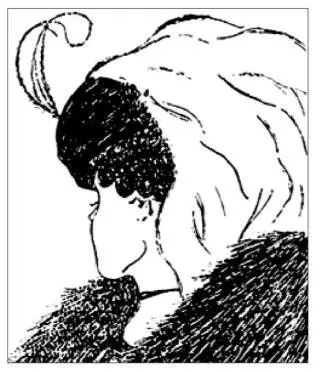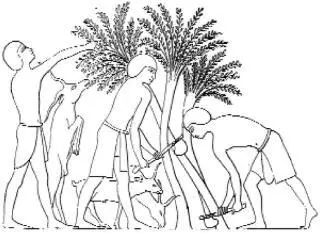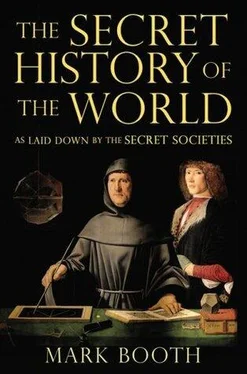So the big WHY questions — WHY life? WHY the universe? — as a matter of quite elementary philosophical distinction, cannot be answered by scientists, or more accurately not by scientists acting in their capacity as scientists. If we ask ‘WHY are we here?’ we may be fobbed off with answers which — like the girl’s early answers- are perfectly valid, in the sense of being grammatically correct answers to the question, but which leave a twist of disappointment in the pit of the stomach, because they don’t answer the question in the way that deep down we want it answered. The fact is that we all have a deep-seated, perhaps ineradicable longing for such questions to be answered at the level of INTENTION. The scientists who don’t grasp this distinction, however brilliant they are as scientists, are philosophical morons.
Obviously we can choose to give parts of our lives purpose and meaning. If I choose to play soccer, then kicking the ball into the back of the net means a goal. But our lives as a whole, from birth to death, cannot have meaning without a mind that existed beforehand to give it meaning.
The same is true of the universe.
So when we hear scientists talk about the universe as ‘meaningful’, ‘wonderful’ or ‘mysterious’, we should bear in mind that they may be using these words with a certain amount of intellectual dishonesty. An atheistic universe can only be meaningful, wonderful or mysterious in a secondary and rather disappointing sense — in the same sense that a stage conjuror is said to be ‘magic’. And, really, when it comes to considering the great questions of life and death, all the equations of science are little more than difficult and long-winded ways of saying ‘We don’t know’.
TODAY WE ARE ENCOURAGED TO PUT aside the big questions of life and death. Why are we here? What is the meaning of life? Such questions are strictly meaningless, we are told. Just get on with it. And so we lose some of the sense of how strange it is to be alive.
This book has been written in the belief that something valuable is in danger of being snuffed out altogether, and that as a result we are less alive than we used to be.
I am suggesting that if we look at the basics of the human condition from a different angle, we may appreciate that science doesn’t really know as much as it claims to know, that it fails to address what is deepest and highest in human experience.
In the next chapter we will begin to imagine ourselves into the minds of the initiates of the ancient world and to see the world from their perspective. We will consider ancient wisdom we have forgotten and see that from its perspective even those things which modern science encourages us to think of as most solidly, reliably true, are really just a matter of interpretation, little more than a trick of the light.

A ‘perspected’ picture, which may be seen either as a witch or a young woman in a feathered hat, depending on your predisposition.
2. A SHORT WALK IN THE ANCIENT WOODS
Imagining Ourselves into the Minds of the Ancients
CLOSE YOUR EYES AND IMAGINE A TABLE, a good table, the table you’d ideally like to work on. What size would it be? What wood would it be made of? How would the wood be joined? Would it be oiled or polished or planed bare? What other features would it have? Imagine it as vividly as you can.
Now look at a real table.
Which table can you be sure of knowing the truth about?
What can you be more sure of — the contents of our mind or the objects you perceive with your senses? Which is more real, mind or matter?
The debate springing from these simple questions has been at the heart of all philosophy.
Today most of us choose matter and objects over mind and ideas. We tend to take physical objects as the yardstick of reality. Contrariwise Plato called ideas ‘the things that really are’. In the ancient world the objects of the mind’s eye were taken as the eternal realities we can really be sure of, as opposed to the transitory, external surfaces out there . What I want to suggest now is that people did not formerly believe in a mind-before-matter universe because they had carefully weighed up the philosophical arguments on either side and come to a reasoned decision, but because they experienced the world in a mind-before-matter way .
While our thoughts are pale and shadowy in comparison with our sense impressions, in the case of ancient man it was the other way round. People then had less of a sense of physical objects. Objects were not as sharply defined and differentiated to them as they are to us.
If you look at depiction of a tree on the walls of an ancient temple, you will see that the artist has not really looked to see how branches are joined to the trunk.
In ancient times no one really looked at a tree in the way we do.

An irritating thing that tour guides on ancient sites like to say goes something like this: ‘Look at this carving of women washing clothes in the river, or men sowing crops — you can still see exactly the same scene very near here.’ There are two types of history, one being the modern, commonsensical approach that assumes that human nature has not substantially changed. This history belongs to the other type. In this history consciousness changes from age to age, even from generation to generation. Note the anatomically inaccurate and somewhat perfunctory depiction of a tree from an 8th Dynasty tomb. The artists who painted these walls were less interested in these physical objects than in the gods depicted only a few paces away in the inner sanctum of the temple. What they looked at in detail and with their greatest powers of concentration were the objects of the mind’s eye. These they portrayed in golden, bejewelled and highly detailed images. The contention of this history, therefore, is that, contrary to what our tour guide might say, any similarity between women washing today and women washing four or five thousand years ago is little more than a matter of appearances.
THESE DAYS WE TEND TO THINK VERY reductively about our thoughts. We tend to go along with the prevailing intellectual fashion that sees thoughts as nothing more than words — perhaps with a penumbra of other stuff, such as feelings, images and so on — but with only the words themselves having any real significance.
However, if we dwell on this fashionable view, even only briefly, we will find that it flies in the face of everyday experience. Take an apparently mundane and insignificant thought such as ‘I mustn’t forget to phone my mother this evening’. If we now try to examine a thought like this as it weaves through our field of consciousness, if we try to hold it back in order to throw a little light on it, we can perhaps see that it carries a loose cluster of word associations, such as might come to light in a psychoanalyst’s word association test. If we then concentrate harder, it may well become apparent that these associations are rooted in memories that bring with them feelings — and may even carry with them their own impulses of will. The guilt I feel at not having phoned my mother earlier, as we now know from psychoanalysis, has roots in a complex knot of feelings that go back to infancy — desire, anger, feelings of loss and betrayal, dependency and the desire for freedom. As I contemplate my feelings of failure, other impulses arise — nostalgia for when things were better perhaps, when my mother and I were one — and an old pattern of behaviour is reanimated.
Читать дальше














